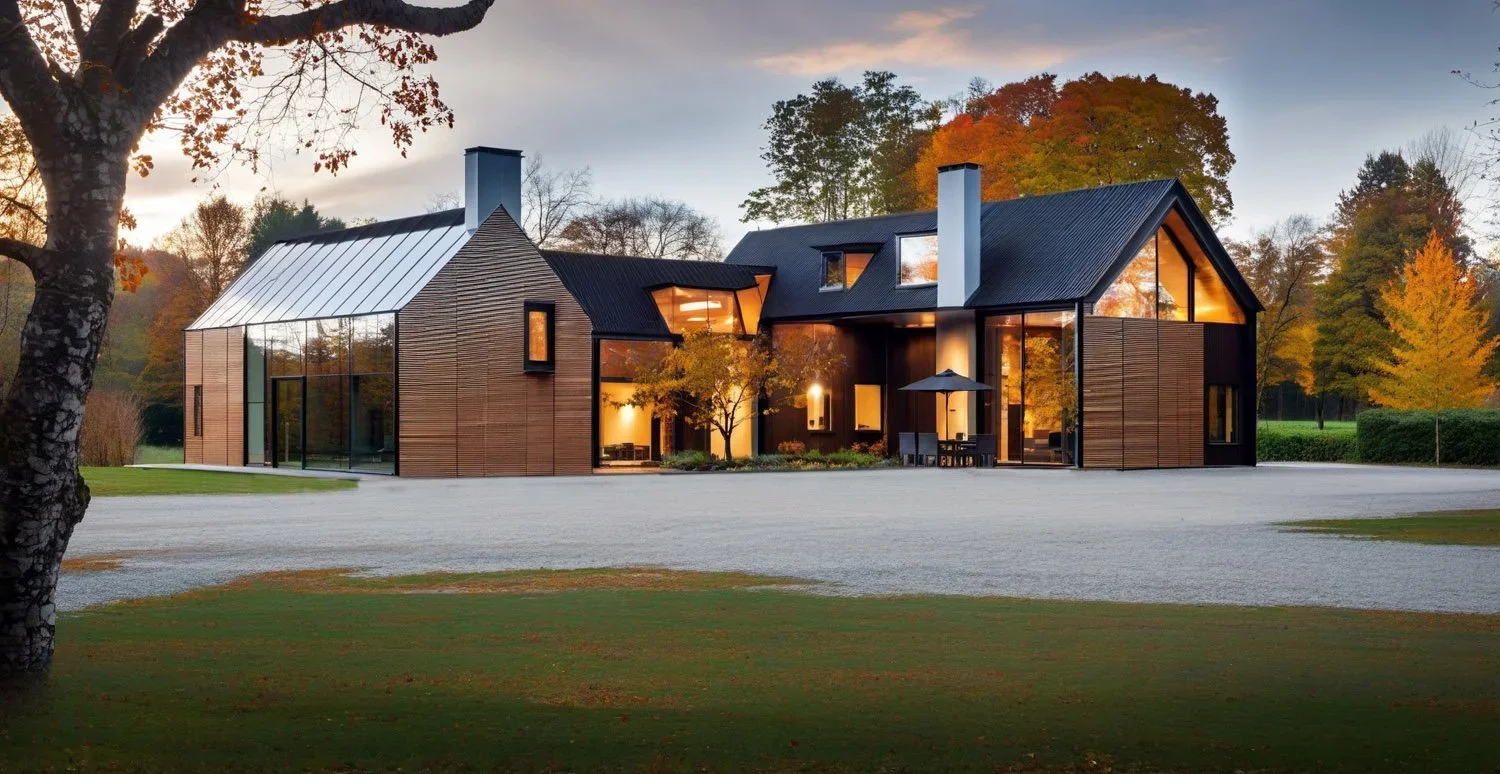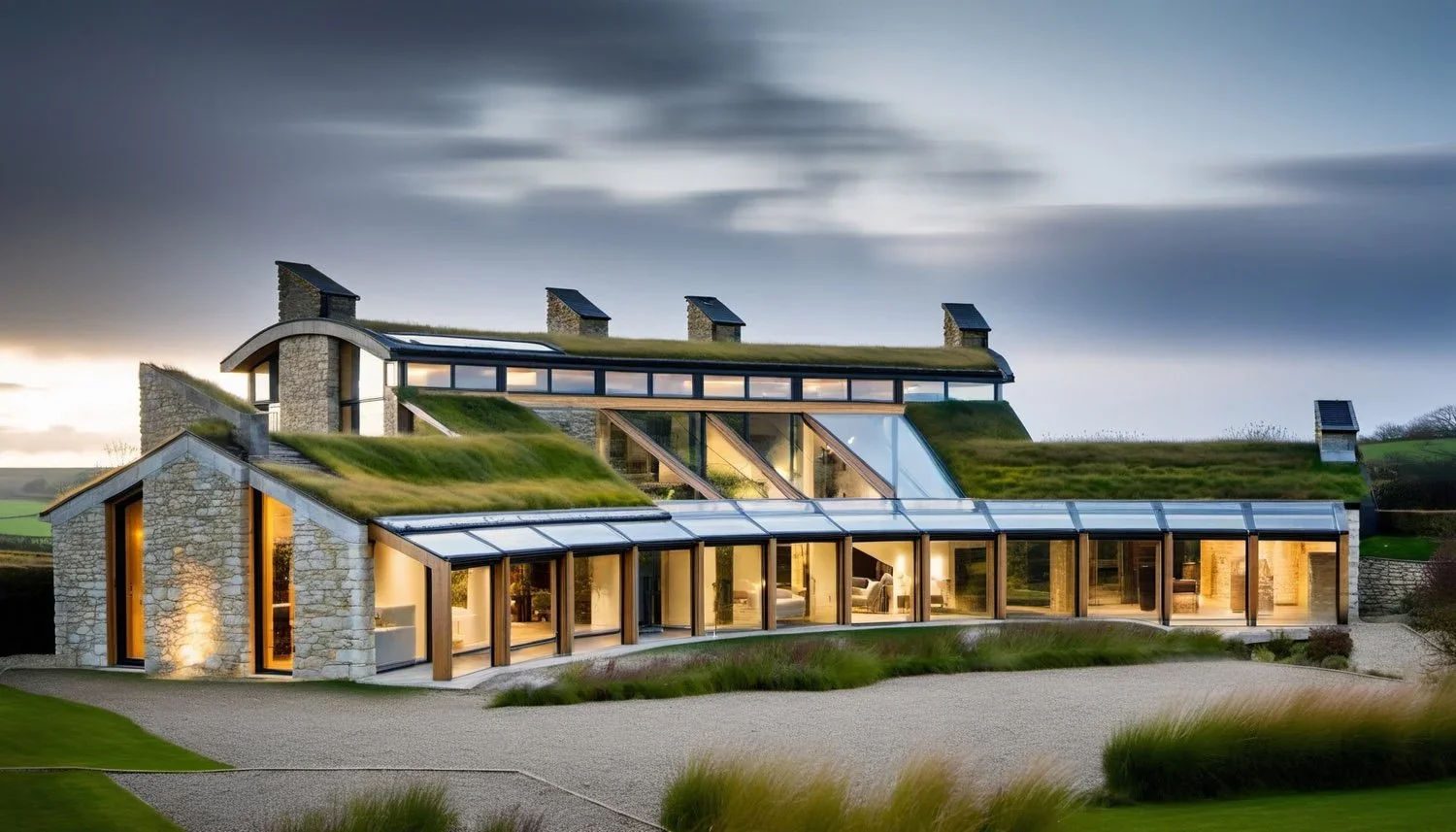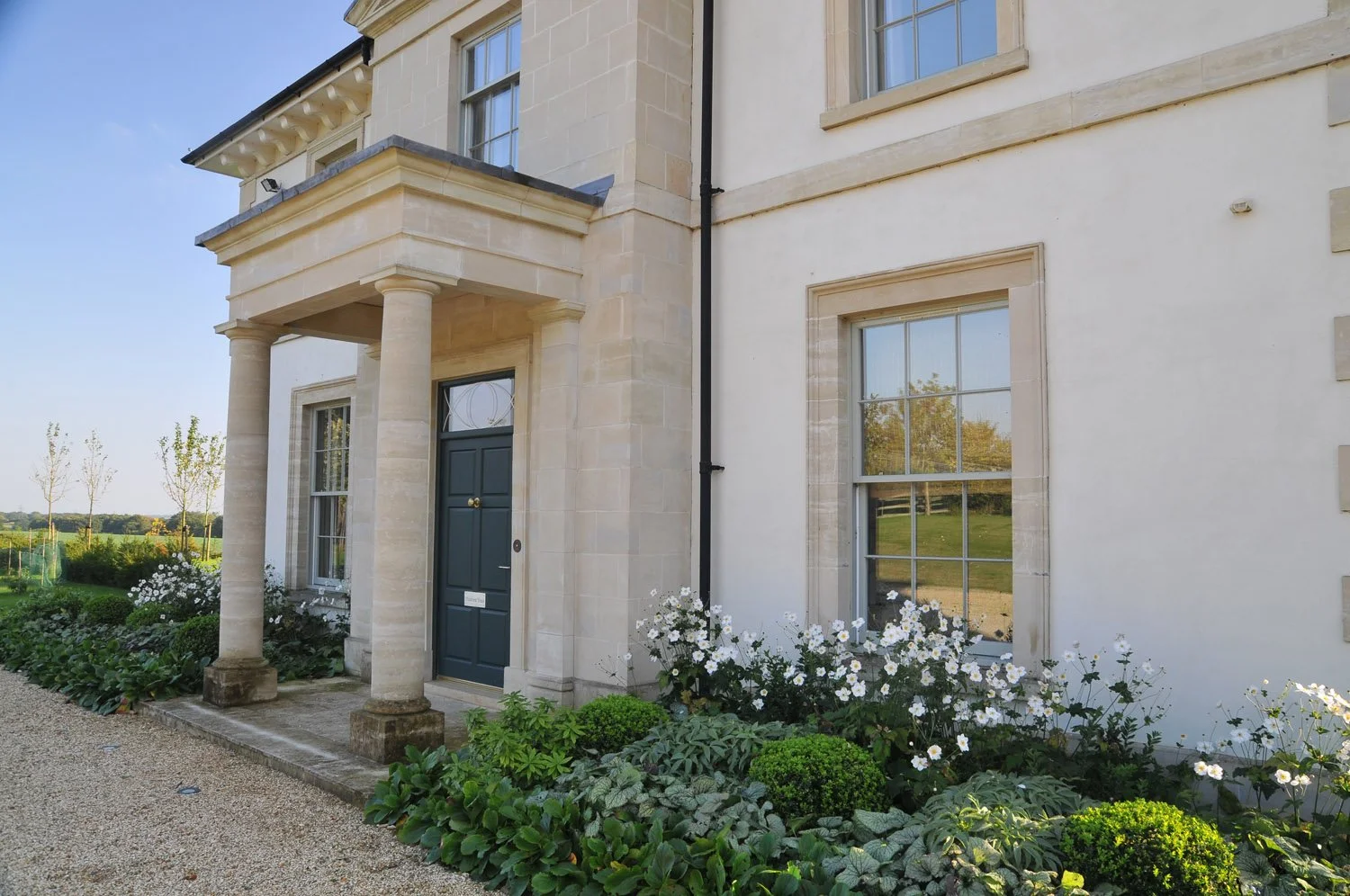A Modern Interpretation of Rural Vernacular Architecture
This bespoke modern family home offers a thoughtful take on local vernacular, blending contemporary design with the character of its rural surroundings.
Balancing modern functionality with sensitivity to its context, the home integrates sustainable materials and energy-efficient technologies for long-term practicality.
This project represents a modern interpretation of rural living, grounded in heritage yet designed for the future.
Sustainable Design in Focus
Designed for a private client, this innovative passive house is carefully positioned within the unique setting of a disused lime quarry.
The building’s form was meticulously planned to respond to the sun’s path, allowing southern light to flood the interior while the highly insulated northern façade, with minimal glazing, reduced heat loss. The curved, linear design followed the natural contours of the quarry, stepping gracefully into the landscape.
The Enduring Character of Flint
This country home was built using a mixture of flint, brick and stone to create character and visual appeal.
Flint, which has long been a staple of British vernacular architecture, remains a popular choice for the following reasons:
Naturally strong & weather-resistant—ideal for British climates
Low-carbon material, sourced directly from local quarries
Distinctive visual appeal, especially in contrast with brick & stone
The Beauty of Natural Stone
Some of the most elegant homes are built from materials that stand the test of time. Natural stone brings warmth, texture, and durability to a design, and we love incorporating it into our projects.
Bath stone, sourced from a local quarry, was used to create a Doric portico for this classical country house.
Timber Sash Windows
Timber sash windows are a defining feature of Britain’s architectural history, from elegant Georgian townhouses to Victorian terraces.
At Alex Oliver Associates, we prioritise high-quality, handcrafted timber sashes to maintain authenticity in restoration projects and traditional-style new builds.
Creating Character and Appeal
Flint has been a staple of British vernacular architecture for centuries, particularly in the South of England. Whether used in traditional flint-knapped walls or as a striking feature in contemporary builds, this locally sourced, highly durable material adds character and texture.
This Arts and Crafts style home demonstrates the distinctive visual appeal of flint, especially when placed in contrast with brick and stone.
Considering the Environmental Impact of Buildings
Just because a home looks traditional, doesn’t mean it can’t be environmentally friendly. The need to consider the impact of buildings on the environment becomes ever more pressing with each passing day
We’re committed to reducing the impact of schemes using a variety of approaches. Like this country house in Wiltshire where a vaulted gallery space on the first floor has the double function of filtering light onto the items within, but also providing passive stack ventilation.
Introducing Renewable Technologies
It's good to be green, but being green shouldn't just be the preserve of new buildings, to really get on top of the problem, every building needs to be looked at carefully to see what can be done. If everybody does something, we'll be able to make a big difference. Even listed buildings can play their part.
We've recently gained planning and listed building consent for a program of restoration and upgrade works on a historic country estate in West Sussex. We have been working closely with Martin Thomas Associates M+E consultants, and a key part of the strategy worked out with them, is to introduce renewable technologies for the site. Here are some illustrations of the strategies to be utilised.








